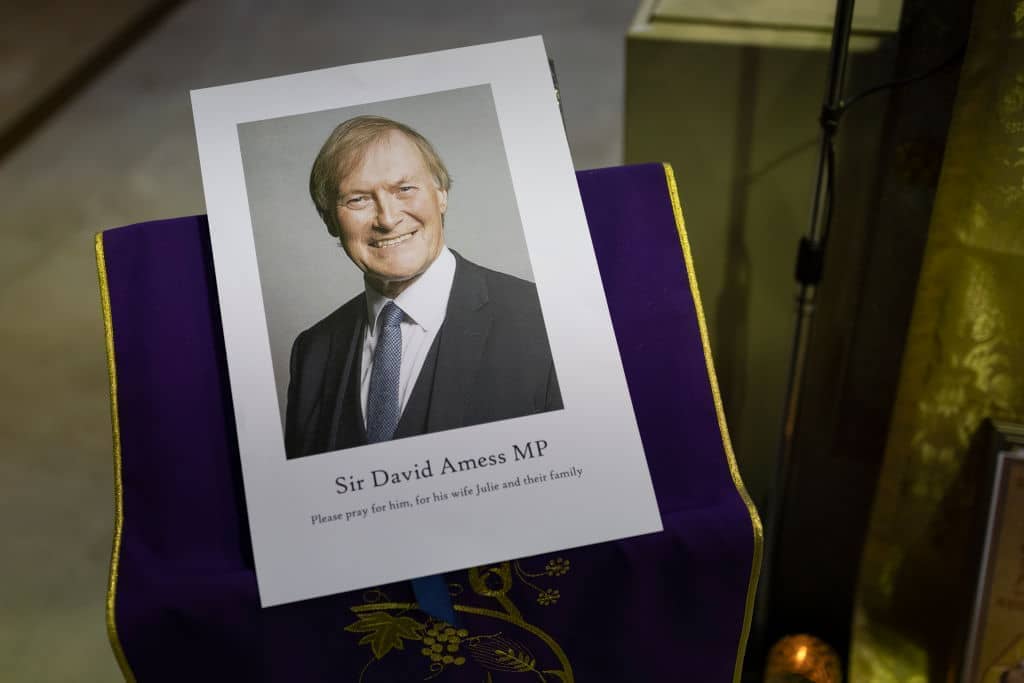I often joke that when I became an MP in 2019, after being a charity chief executive, I went from saint to sinner in the mind of the public.
When you work for a charity, people assume you’re one of the good guys: honest, principled, in it for the right reasons. Too often politicians are seen as the opposite: dishonest, unprincipled, in it for themselves – and probably fiddling their expenses.
Both stereotypes are wrong, yet they persist. I am regularly asked why I made the switch – not least by friends and family members, who know politics matters but wouldn’t touch it with a barge pole.
It is a question that I know will be asked more regularly after the senseless killing of Sir David Amess. Here was a kind, big-hearted man with a permanent smile, going about the business of serving the community he loved. You couldn’t get much further away from an object of hatred than David.
To know that someone like him could be attacked in this way – like Jo Cox and Stephen Timms before him – has left us all shocked and feeling hollow. That has nothing to do with being in the same party as him: the tributes have come from all sides of the House. There is a special camaraderie that we 650 MPs feel despite our political differences.
We all share an understanding of the pressures of the job: the long hours, the frustration of not being able to fix every constituent’s problems however hard you try, the toll it can take on relationships, the angry abuse you receive, including death threats.
But I think the life of Sir David Amess shows why people still should enter politics and not be put off. Here was a man who grew up poor. As he once wrote:
‘As a child my family had little money… we had no bathroom (the tin bath used to hang on a wall outside), an outside toilet, and a larder instead of a refrigerator. We didn’t have a washing machine, but had a scrubbing board and we didn’t have a telephone we just threw the window open and shouted loudly at one another.’
He rose from these humble beginnings to become an MP who served his country with distinction, helping to change a number of our laws. His work on issues like animal welfare, endometriosis and trying to get Southend classified as a city (let’s hope it finally happens) are well-documented, but what I will most remember are his contributions to what we call the ‘end of term debate’ or ‘matters arising before the forthcoming adjournment’ as it is more formally known.
This debate takes place at the end of a parliamentary term, when MPs can talk about any issue they want – usually one to three topics. Those of us who took part always looked forward to Sir David’s speech. He would deliver his tour de force at a brisk pace to get everything in within the allocated time limit. In the debate last Christmas he raised over 30 different issues, highlighting along the way the many local initiatives he supported to try and help his constituents.
It was in speeches like this that David really demonstrated why people should enter politics. There are stresses and strains in this job and more danger than there should be. We’ve still got lots to do to lower the temperature of our debates, both in parliament and on social media – and it’s the responsibility of both politicians like me and the people who comment on politics. Politics has been degraded for far too long and more and more people have been put off along the way.
But for people who might be considering it, the truly rewarding part of the job is the ability to help people, whether it’s with issues of health, housing, benefits or the thousands of other problems that come across your desk. Sir David did this with aplomb. And every time he entered parliament you could see on his face how much he loved being there.
It would be natural for people interested in politics to look at how Sir David’s life ended and decide it isn’t for them. But despite the deep upset I feel, I don’t regret my decision to move into politics. I hope people will look at all Sir David was able to do as an MP, a job he so clearly loved, and realise that politics remains a very worthwhile and rewarding way to help people.






Comments